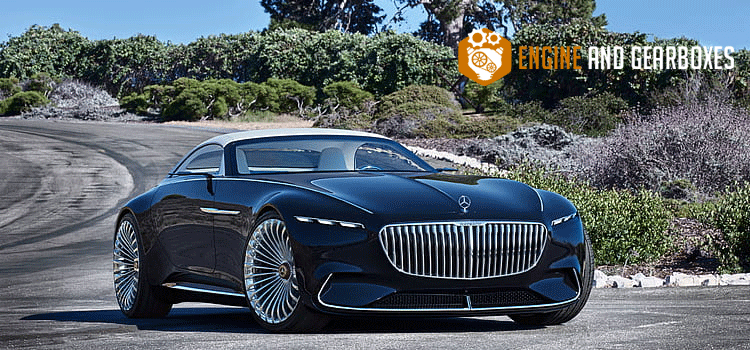How to Customize a Mercedes Engine for Enhanced Performance?

Mercedes-Benz is synonymous with precision engineering and high performance. However, even the best can benefit from fine-tuning to match personal driving preferences or specific performance goals. Whether you’re looking to boost horsepower, improve throttle response, or enhance fuel efficiency, customizing your Mercedes engine can offer significant gains. This article will delve into the steps and considerations involved in modifying your engine, from simple upgrades to more extensive engine replacements.
Understanding Your Vehicle’s Engine
Before diving into customization, it’s crucial to have a thorough understanding of your Mercedes engine’s baseline performance. Mercedes engines are designed with specific parameters to balance performance, reliability, and fuel efficiency. Familiarize yourself with your engine’s specifications, such as horsepower, torque, and any existing performance features. This foundational knowledge will guide you in making informed decisions about which modifications will yield the best results. Key areas to assess include the engine type (e.g., V6, V8, or inline), turbocharging status, and existing performance parts.
Engine Replacement: A Comprehensive Approach
One of the most effective ways to boost your Mercedes’s performance is through engine replacement. Upgrading to a more powerful engine can transform your vehicle’s capabilities. This process involves removing the existing engine and replacing it with a new or upgraded unit that offers higher performance specifications. Engine replacements can range from swapping in a newer model engine with better performance metrics to installing a high-performance aftermarket engine designed for superior power and efficiency. Consider factors such as compatibility with your vehicle’s transmission and electronics, as well as any modifications required to fit the new engine properly.
Reconditioned Engines: An Affordable Performance Boost
Reconditioning an engine involves refurbishing an existing engine to restore its performance to near-new conditions. This option is often more cost-effective than a complete engine replacement and can provide a significant performance boost. Reconditioning typically includes replacing worn-out components, re-machining engine parts, and improving overall engine health. For those looking to enhance performance, reconditioning offers a way to upgrade specific elements of the engine, such as camshafts, pistons, or cylinder heads, without the expense of a brand-new engine. This approach also maintains the originality of your vehicle while enhancing its capabilities.
Supply and Fit: Sourcing Performance Parts
The supply and fit of performance parts are essential components of engine customization. Performance parts such as high-flow air filters, performance chips, and upgraded exhaust systems can significantly improve engine performance. When sourcing these parts, it’s important to choose high-quality, compatible components that match your vehicle’s specifications. Proper installation of these parts is crucial to achieving the desired performance gains. Professional installation ensures that parts are fitted correctly and function as intended, avoiding potential issues that could arise from improper fitting.
Tuning and Calibration: Optimizing Performance
Once you have installed new parts or replaced the engine, tuning and calibration are essential to optimizing performance. Engine tuning involves adjusting various engine parameters, such as fuel mapping, ignition timing, and boost levels, to maximize performance gains. Calibration ensures that the engine operates efficiently with the new modifications and that all components work harmoniously. This process often requires specialized equipment and expertise to fine-tune the engine settings and achieve the best possible performance outcomes.
Upgrading Engine Components: Key Considerations
Upgrading specific engine components can also enhance performance. Components such as turbochargers, superchargers, and high-performance fuel injectors can significantly boost engine power and responsiveness. When upgrading these components, consider the overall balance of your engine system. For example, installing a high-performance turbocharger may require upgrading the intercooler and exhaust system to handle the increased power and heat. Careful consideration of how each component interacts with others ensures that performance enhancements do not negatively impact engine reliability or longevity.
Cooling Systems and Heat Management
Enhanced performance often generates more heat, making an effective cooling system crucial. Upgrading your cooling system can help manage the increased temperatures resulting from performance modifications. Consider installing high-performance radiators, oil coolers, and intercoolers to maintain optimal engine temperatures. Proper heat management not only improves performance but also extends the life of engine components by preventing overheating and reducing thermal stress. Ensuring that your cooling system is up to the task will help maintain consistent performance and reliability.
Conclusion
Customizing a Mercedes engine for enhanced performance involves a blend of strategic upgrades, careful tuning, and thoughtful component selection. From engine replacements and reconditioned engines to the supply and fit of performance parts, each step plays a crucial role in achieving your desired performance goals. By understanding your engine’s baseline, choosing the right modifications, and ensuring professional installation and tuning, you can significantly enhance your Mercedes Engine performance. Whether you’re aiming for increased horsepower, improved fuel efficiency, or a more responsive driving experience, these customization options offer a pathway to achieving your automotive dreams.


